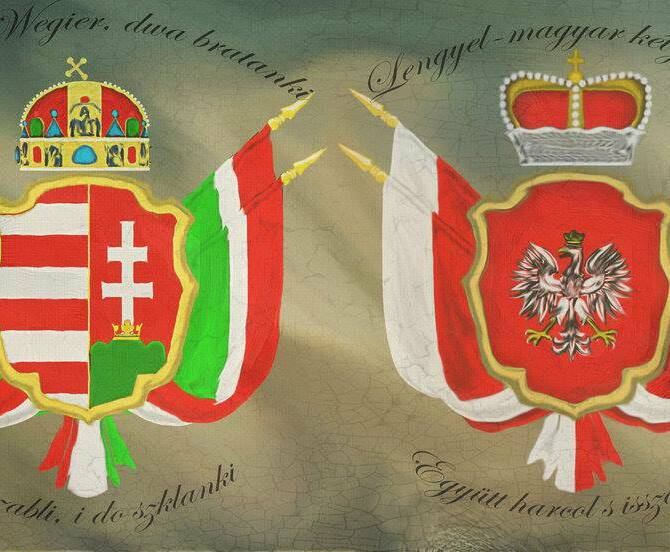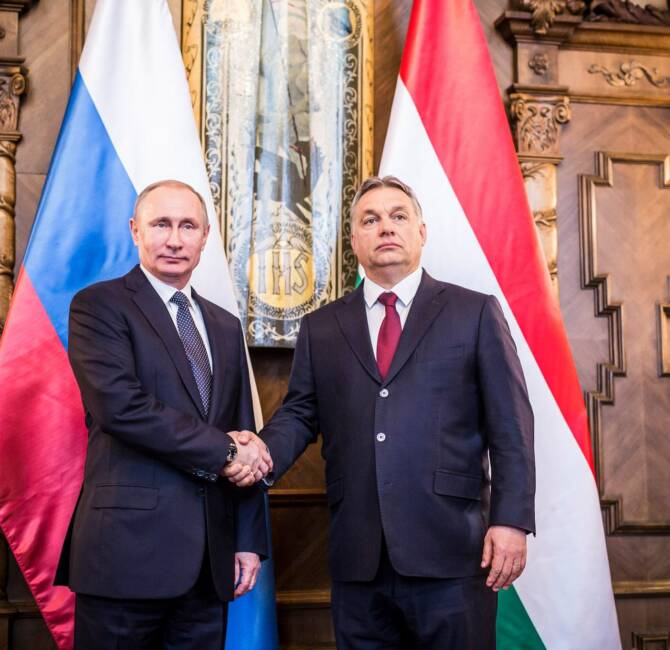This article was published online by the Magyar Nemzet on 8 January 2022.
Tristan Azbej: extreme islamism and woke culture are simultaneously attacking europe.
“Two types of danger threaten Western Christianity: the extremist Islam increasing with migration and woke culture / extreme liberalism which would just as well abolish the fundamental rights of Christians,” Tristan Azbej revealed in his interview with Magyar Nemzet. The State Secretary for the Aid of Persecuted Christians and the Hungary Helps Program discussed the past year’s achievements, the most worrying consequences of migration, and the processes endangering European Christianity.
“After a 2020 dominated by pandemic restrictions and defense, the Hungary Helps program was renewed with fresh vigor in 2021. By the end of the year, we reached more and more people in need and – if we try to quantify this mission, when in reality it has a much larger meaning – we helped persecuted Christians in over 40 countries and other crisis-stricken communities with nearly 200 aid programs and donations,” said the state secretary of the Prime Minister’s Office in charge of assisting persecuted Christians and the Hungary Helps program. Tristan Azbej pointed out that the Hungary Helps program reached a very significant milestone last year by helping more than half a million people worldwide.
Helping to recover
The Hungary Helps programs have been successfully implemented in many parts of the world, helping to keep communities alive and well. “This is the case in Kosovo as well, whose location sticks out, yet follows the same principle,” he said of his visit to Kamenica in December. Kosovo was devastated by bloody war in the late 1990s, and although the peacekeeping mission there was able to put a stop to the war, the wounds of the conflict have not yet healed in society. The Serbian and Albanian-speaking ethnic groups are completely segregated, and acts of violence occur from time to time –Kamenica is in a particularly disadvantaged region. The local youth center set up at the behest of the community and opened in December also offers a range of vocational training opportunities, including IT and business development skills, foreign languages, and creative arts. “We are glad that we could contribute, and the Kosovars deserve to finally leave the devastation of war behind them,” said the politician. He believes it also especially important to mention that the Hungarian soldiers in the Kosovo peace-mission have done an enormous job; currently over 500 Hungarian soldiers are serving in the region.
Support instead of migration
Since its inception, the Hungary Helps program has been aggressively attacked by the left: what’s the point of providing aid abroad while we have plenty to fund here at home like healthcare, education etc.? The politician in charge of the program replied to this criticism: the left is attacking this program because they support migration. The Hungary Helps program is not only popular and exemplary in Hungary but also internationally. “The domestic left, upon noting the success of the program, has tried to discredit our mission in several ways – because the goal of the left is to fill Europe with migrants, to change its population and culture, and take down nations.” He added: “if the Gyurcsány–Bajnai–Márki-Zay left comes to power, our country will become a country of migrants as well.”
They support integrating the migrants, not helping them in their home countries where the problems lie. It is a valid question: why is it in the interest of the Hungarian people to sacrifice money abroad for the survival of these communities through this international assistance program? “This topic doesn’t affect everyone, not everyone feels solidarity with persecuted
Christian communities in the Middle East for example. That’s why it’s important to discuss that the survival of communities is at stake here along with serving the security and material interests of the Hungarian people. After all, accepting migrants is not only riskier but also more expensive as opposed to supporting their situation at home. From the amount of money that it takes to build a house here in Hungary for a migrant family, we can build five houses in the Middle East and ten in Sub-Saharan Africa. Thus, anyone who supports migration over providing aid at home for these people, simply wants to take money from the Hungarian peoples’ pockets,” explained Tristan Azbej. He believes that a portion of the migrants pose a risk to host societies, especially where parallel communities are forming. Meanwhile, migration is bad for the origin countries too as they lose their youth who would help them rebuild the country.
Two-front attack
Tristan Azbej believes there are two major threats to Western Europe today. One is the extremist Islamism that is coming along with migration and leading to increasing serious terror attacks in Europe. The other can be called extreme liberalism, militant atheism, or the increasingly aggressive woke culture; it’s not only attacking our Christian cultural values, but also trying to oust Christian values, believers and references from public life. “They are currently experimenting with restricting the fundamental human rights of Christians, the right to freedom of religion and conscience,” said the secretary. These are the dangers that could appear in Hungary as well, but with the construction of the border fence and anti-migration measures, we have so far successfully prevented a larger Muslim community from entering and reshaping our culture, including the dangerous minority who may represent political extremist Islamism. “As long as this government remains in Hungary, we will protect our country from this danger,” he declared. He emphasized that signs of aggressive anti-Christianity are being detected more and more often in Hungary, which can be clearly linked to the left-wing politicians and their spiritual cliques. “Such is when for example, left-wing journalists attack and insult religious symbols and ideals that are sacred to Christian people and form part of their identity, thus violating the dignity of Christians. But these also include hate speech and openly anti-Church and anti-Christian incitement, including the statements from Peter Niedermuller of the DK party (Democratic Coalition) when he spoke of the ‘white, heterosexual, Christian formations’ that frightened him.” The politician believes that we can see exactly from the crises throughout history that dehumanization is always the last step before acts of violence. “We reject this and will now allow Christians in Hungary to be persecuted, and if they are, we will stand up for them in the most assertive way possible,” he emphasized.
In connection with the future plans of the Hungary Helps program, we learned that in addition to the results on paper, an important mission has become presenting Hungary in foreign countries. According to the State Secretary, many Hungarians support the Hungary Helps mission. “People are sending reinforcements, donations, and want to volunteer for our program. In other words, due to our mission and conscientious commitment, the Hungary Helps program will continue next year, serving the needs of persecuted Christians.” He added that where we are able to save lives, we will strive to do so, and we want to protect as many people as possible from being forced to choose migration instead of staying in their homeland. The Middle East and Africa will remain at the helm of the program, but they will also support the Balkans and surrounding countries if it is necessary.
Krisztina Kincses




